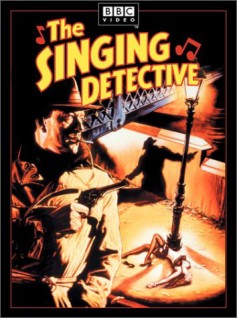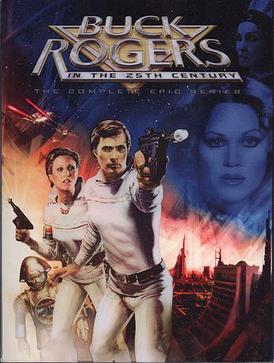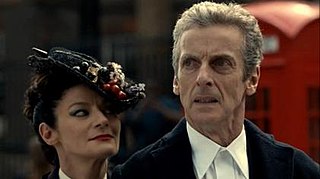
Doctor Who is a British science fiction television series broadcast by the BBC since 1963. The series depicts the adventures of a Time Lord called the Doctor, an extraterrestrial being who appears to be human. The Doctor explores the universe in a time-travelling space ship called the TARDIS. The TARDIS exterior appears as a blue British police box, which was a common sight in Britain in 1963 when the series first aired. With various companions, the Doctor combats foes, works to save civilisations, and helps people in need.

The Darling Buds of May is a British comedy drama television series, produced by Yorkshire Television for the ITV network, first broadcast between 7 April 1991 and 4 April 1993. The first six episodes of Series 1 and the first two of Series 2 are adaptations of the 1958 novel of the same name, and three of its four sequels, by H. E. Bates. The remaining episodes are original storylines based on the same format.

Quatermass and the Pit is a British television science-fiction serial transmitted live by BBC Television in December 1958 and January 1959. It was the third and last of the BBC's Quatermass serials, although the chief character, Professor Bernard Quatermass, reappeared in a 1979 ITV production called Quatermass. Like its predecessors, Quatermass and the Pit was written by Nigel Kneale.

A for Andromeda is a British television science fiction drama serial first made and broadcast by the BBC in seven parts in 1961. Written by cosmologist Fred Hoyle, in conjunction with author and television producer John Elliot, it concerns a group of scientists who detect a radio signal from another galaxy that contains instructions for the design of an advanced computer. When the computer is built, it gives the scientists instructions for the creation of a living organism named Andromeda, but one of the scientists, John Fleming, fears that Andromeda's purpose is to subjugate humanity.

The Singing Detective is a BBC television serial drama, written by Dennis Potter, starring Michael Gambon and directed by Jon Amiel. Its six episodes are "Skin", "Heat", "Lovely Days", "Clues", "Pitter Patter" and "Who Done It".

Quatermass II is a British science fiction serial, originally broadcast by BBC Television in the autumn of 1955. It is the second in the Quatermass series by writer Nigel Kneale, and the oldest of those serials to survive in its entirety in the BBC archives.
David John Lee Maloney was a British television director and producer, best known for his work on the BBC science-fiction series Doctor Who, Blake's 7 and The Day of the Triffids. The Guardian described him on his death as "one of that old school who could turn out 30-minute dramas in two days shooting time".

BBC television dramas have been produced and broadcast since even before the public service company had an officially established television broadcasting network in the United Kingdom. As with any major broadcast network, drama forms an important part of its schedule, with many of the BBC's top-rated programmes being from this genre.

Planet of Giants is the first serial of the second season in the British science fiction television series Doctor Who. Written by Louis Marks and directed by Mervyn Pinfield and Douglas Camfield, the serial was first broadcast on BBC1 in three weekly parts from 31 October to 14 November 1964. In the serial, the First Doctor, his granddaughter Susan Foreman, and her teachers Ian Chesterton and Barbara Wright are shrunk to the size of an inch after the Doctor's time machine the TARDIS arrives in contemporary England.
Planet of Evil is the second serial of the 13th season of the British science fiction television series Doctor Who. It was first broadcast in four weekly parts on BBC1 from 27 September to 18 October 1975.

Star Cops is a British science fiction television drama series first broadcast on BBC2 in 1987. It was devised by Chris Boucher, a writer who had previously worked on the science fiction television series Doctor Who and Blake's 7 as well as crime dramas such as Juliet Bravo and Bergerac. Set in the year 2027, a time where Interplanetary travel has become commonplace, it starred David Calder as Nathan Spring, commander of the International Space Police Force—nicknamed the "Star Cops"—who provide law enforcement for the newly developing colonies of the Solar System. The series follows Nathan Spring and the rest of his multinational team as they work to establish the Star Cops and solve whatever crimes come their way. Operating in a relatively accurately realised hard SF, near-future, space environment, many of the cases that the Star Cops investigate arise from opportunities for new crimes presented by the technologically advanced future society the series depicts and from the hostile frontier nature of the environment that the Star Cops live in.

The Paradise of Death is a 5-part BBC radio drama, based on the long-running British science fiction television series Doctor Who, and starring Jon Pertwee as the Doctor.

Buck Rogers in the 25th Century is an American science fiction adventure television series produced by Universal Studios. The series ran for two seasons between September 1979 and April 1981 on NBC, and the feature-length pilot episode for the series was released as a theatrical film before the series aired. The film and series were developed by Glen A. Larson and Leslie Stevens, based on the character Buck Rogers created in 1928 by Philip Francis Nowlan that had previously been featured in comic strips, novellas, a serial film, and on television and radio.

Bleak House is a BBC television drama first broadcast in 1985. The serial was adapted by Arthur Hopcraft from the Charles Dickens novel Bleak House (1853).

Representations of gorillas are common in popular culture in the Western world with the full range of electronic media having gorillas as mascots, gorillas behaving like humans, and humans behaving like gorillas.

The Changes is a British children's science fiction television serial filmed in 1974 and first broadcast in 1975 by the BBC. It was directed by John Prowse and is based on the trilogy written by Peter Dickinson: The Weathermonger (1968), Heartsease (1969), and The Devil's Children (1970).
British television science fiction refers to popular programmes in the genre that have been produced by both the BBC and Britain's largest commercial channel, ITV. BBC's Doctor Who is listed in the Guinness World Records as the longest-running science fiction television show in the world as well as the "most successful" science fiction series of all time.

"Dark Water" is the eleventh episode of the eighth series of the British science fiction television programme Doctor Who. It was first broadcast on BBC One on 1 November 2014. The episode was written by showrunner and head writer Steven Moffat and was directed by Rachel Talalay. It is the first of a two-part story; the concluding episode "Death in Heaven", the finale of the eighth series, aired on 8 November.

Frozen Planet II is a 2022 British nature documentary series co-produced by the BBC and The Open University as a sequel to FrozenPlanet, which was first broadcast in 2011. The series is presented and narrated by Sir David Attenborough with the music composed by Hans Zimmer, Adam Lukas and James Everingham, including a theme featuring the vocals of singer-songwriter Aurora.















